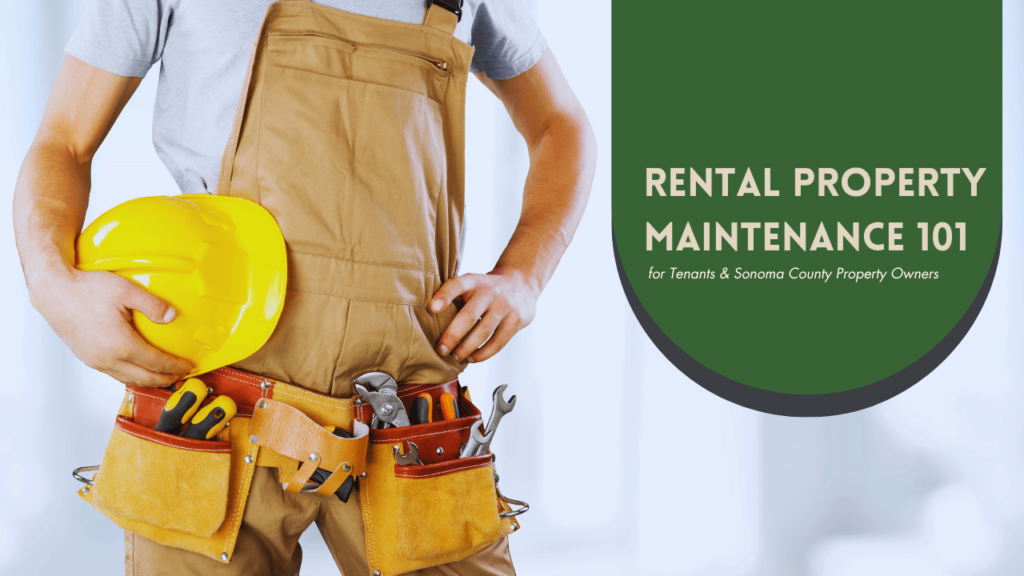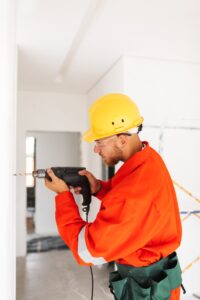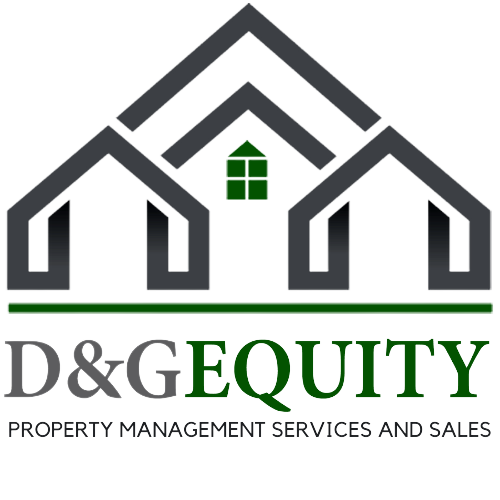
Navigating the responsibilities of property maintenance can be a complex task, especially when it involves understanding the distinct roles of tenants and property owners. In Sonoma County, where the real estate rental market is as diverse as the landscape, both parties play pivotal roles in ensuring the upkeep of rental properties. This comprehensive guide delves into the responsibilities of tenants and owners, the importance of proactive maintenance, and how these practices impact your Housing Provider-tenant relationship and property values.
Understanding Shared Responsibilities of Residential Property Maintenance
Tenant’s Role in Property Care
The role of tenants in maintaining rental properties is often underestimated, yet it’s essential for the longevity and health of the property. One of the most frequent challenges is a lack of knowledge regarding basic property care practices. For example, improper cross-ventilation can lead to moisture buildup, creating an ideal environment for mold and mildew. To combat this, it’s critically important for tenants to understand and implement basic maintenance practices.
Professional Sonoma County property management companies like D & G Equity Management, play a pivotal role in this educational process. We provide tenants with comprehensive documents and guidelines that cover a range of maintenance issues, from preventing mold to proper waste disposal and routine cleaning practices. Booklets that are included with the rental contract are : “Information on Dampness and Mold for Renters in California” and “Combined Hazards Booklets”
This proactive approach not only helps in preserving the property’s condition, but also empowers tenants to take an active role in the care of their living space. By understanding their responsibilities in day-to-day property care and routine maintenance, tenants can prevent small issues from escalating into major problems, ultimately benefiting both themselves and the property owner.
Owner’s Responsibilities
While tenants handle the basic everyday upkeep of the rental property, the owner’s responsibilities are more extensive and involve ensuring the property’s overall integrity and habitability. Property owners are tasked with handling significant maintenance issues that are beyond the scope of their tenants. This includes major structural repairs, addressing normal wear and tear, and responding to the aging of the property, appliances heat source and systems.
Effective communication with tenants is another critical owner responsibility. By maintaining open lines of communication, Sonoma County Housing Providers can promptly address maintenance issues reported by their tenants. This not only helps to keep the property in good condition, but also contributes to tenant satisfaction. A quick response to maintenance requests underscores the owner’s commitment to the property and its occupants, fostering a positive and respectful relationship between the two.
Rental property owners in Sonoma County must always ensure that their properties comply with habitability standards set by State, Federal laws, and regulations. This involves regular inspections, timely repairs, and upgrades to the property’s structural and functional aspects. For example, if an HVAC system breaks down or there’s a leak in the roof, it’s the owner’s responsibility to arrange for a contractor to finance the necessary repairs.
California State Laws and Their Impact on Maintenance Issues
Understanding the specific laws and codes is crucial for both Housing Providers and tenants in California. Compliance ensures legal adherence and promotes safety, health, and well-being within rental properties. Landlords should stay informed about these regulations and incorporate them into their property management strategies, while tenants should be aware of their rights and responsibilities under these laws. This knowledge fosters a collaborative approach to residential property maintenance, ensuring a positive rental experience for all parties involved.
1. Habitability Standards: The California Civil Code (Sections 1941 and 1941.1) outlines the Housing Provider’s obligation to provide habitable rental properties. This includes adequate , available heat, water, electricity, and maintaining clean, sanitary, and structurally safe premises.
2. Structural Safety: California Building Code (Title 24 of the California Code of Regulations) sets standards for the structural safety of buildings, including rental properties. Landlords must ensure that the building adheres to these safety standards to avoid hazards.
California State Laws and Their Impact on Maintenance Issues, Cont…..
3. Health and Safety Codes: The California Health and Safety Code addresses various issues related to public health and safety in residential properties. This includes regulations on mold (per Senate Bill 655), lead paint (Title X – Residential Lead-Based Paint Hazard Reduction Act of 1992), and asbestos management.
4. Repairs and Maintenance: Under the California Civil Code (Section 1942), tenants have certain rights to address repair issues.
5. Regular Inspections: While specific state laws do not mandate regular inspections, the California Department of Housing and Community Development recommends them as best practices under various health and safety codes.
6. Smoke Detector and Carbon Monoxide Detector Installation: California Health and Safety Code (Sections 17926-17926.2 for smoke detectors and Section 17926.1 for carbon monoxide detectors) mandates the installation and maintenance of these safety devices in residential properties.
7. Tenant Privacy Rights: The California Civil Code (Section 1954) stipulates tenant privacy rights, including the requirement for Housing Providers to provide reasonable notice before entering a rental property, typically 24 hours or in case of an emergency, they can enter at anytime
8. Rent Control Ordinances: Rent control in California is governed by various local ordinances and the statewide California Tenant Protection Act of 2019 (Assembly Bill 1482), which limits rent increases and provides eviction protections.
Keep in mind that California’s landlord-tenant laws and regulations are always changing. It is essential that Sonoma County landlords stay up to date with it all – or risk legal action. (Check out our previous blog on the updates expected in 2024 to learn more.)
Proactive Maintenance: A Win-Win Approach
Proactive maintenance is about aesthetics and also about economics. By investing in routine repairs and updates, Sonoma County landlords can significantly increase the rental value of their properties. One project that we took on allowed us to raise the monthly rent from $2,100 to $2,800, with minimal cost. {Check the tenant protection laws, AB 1482}
At D & G Equity Management, our approach towards maintenance is always proactive rather than reactive. This involves:
- Property Evaluation: Upon managing new properties or retaining our existing ones, a thorough evaluation is conducted. This helps to identify maintenance needs before they become emergency repairs as well as potential improvements that could help with the value of a rental property.
Proactive Maintenance: A Win-Win Approach Cont….
- Maintenance List to Clients: New clients receive a list of suggested updates. Most owners agree to these suggestions, understanding their importance in property value enhancement, and often undertake the management of the work themselves.
- Project Oversight: If an owner prefers, D & G can oversee maintenance work, ensuring that everything is done to a high standard while also helping to keep costs down for our managing properties only.
The Cost Factor: Proactive vs. Deferred Maintenance
Maintenance costs vary depending on the property – and are essential investments. For example, pressure washing a house might cost around $3,200, but it can really improve how the property looks and prevents damage. On the other hand, if you keep putting off maintenance items until they become emergency repairs, it can end up costing much more. One property we managed needed $30,000 in repairs because routine upkeep was ignored. Furthermore, this not only delayed the time it took to get the property ready for tenants but also meant the owner had to wait longer to see any return on that investment (ROI).
Regular maintenance might seem expensive at first, but it saves money in the long run and keeps the property looking good, which is important for attracting and keeping quality tenants.
The D & G Standard: Keeping Good Tenants Happy
Good maintenance is a critical factor in tenant retention. When tenants see that their Housing Providers are invested in the property and responsive to their needs, they are more inclined to stay longer. This reduces turnover costs and ensures a steady rental income for the owners. The benefits of good maintenance extend beyond the immediate tenant-landlord relationship. Well-maintained properties contribute to the overall appeal of the neighborhood, potentially increasing property values in the area. This, in turn, attracts quality tenants and responsible property owners, creating a positive cycle of investment and care. Whether it’s a small task like pressure washing or a larger renovation project, each step taken towards maintenance is a step towards securing a profitable and harmonious rental experience.
 Experienced Sonoma County property managers, D & G Equity Management serves area Housing Providers and real estate investors with furnished or unfurnished single family homes, multi-unit properties and commercial units throughout the Sonoma County area. We are known for maintaining properties efficiently and responding promptly to repair requests. Our commitment to upkeep and habitability is not just about following the contract, but also about nurturing a positive tenant-owner relationship. A happy tenant who feels valued and taken care of is more likely to pay rent on time, treat the property with respect, and remain a high-quality resident of your property. Contact us if you’d like to learn more about our proactive maintenance procedures or anything else related to property management in Sonoma County.
Experienced Sonoma County property managers, D & G Equity Management serves area Housing Providers and real estate investors with furnished or unfurnished single family homes, multi-unit properties and commercial units throughout the Sonoma County area. We are known for maintaining properties efficiently and responding promptly to repair requests. Our commitment to upkeep and habitability is not just about following the contract, but also about nurturing a positive tenant-owner relationship. A happy tenant who feels valued and taken care of is more likely to pay rent on time, treat the property with respect, and remain a high-quality resident of your property. Contact us if you’d like to learn more about our proactive maintenance procedures or anything else related to property management in Sonoma County.
